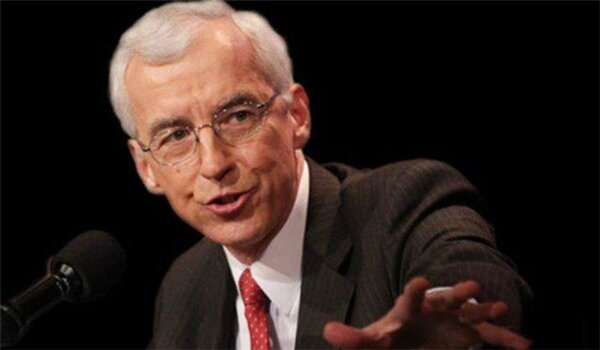“No Kings” protests are reaction to Trump’s authoritarian drift: ex-CIA official
Paul Pillar says public demonstrations are the last line of defense against erosion of democratic norms

TEHRAN- In an exclusive interview with the Tehran Times, Paul R. Pillar, a veteran intelligence analyst and former senior CIA official, examined the emergence of the “No Kings” movement in the United States as a grassroots reaction to what many see as Donald Trump’s authoritarian drift during his second term.
Pillar described the protests as a manifestation of citizens’ alarm over the weakening of institutional checks and balances and the erosion of democratic norms.
The following is the text of the interview:
How might Trump’s second-term policies reshape the social fabric of the United States, particularly regarding polarization, race relations, and public trust in institutions?
Trump's second term has been more extreme than his first term in every respect and is inflicting severe damage on liberal democracy. Divisiveness has been a major part of Trump's political approach, and his role has increased political polarization. The racial dimension is part of this, in that Trump has increasingly applied white nationalist, and outright racist, themes, such as by virtually eliminating asylum for foreigners except for white South Africans. Public trust in governmental institutions unfortunately is apt to suffer, if the public fails to distinguish clearly between the institutions themselves and how Trump has corrupted and misused them.
To what degree have economic inequality and disillusionment with political elites contributed to both Trump’s support base and the protest movements against him?
Much of Trump's support has come from white men with relatively low education, who feel left behind by economic advances in a globalized world. Such individuals find it easy to blame elites for their situation. Although Trump's ill-advised economic policies may eventually generate economically based protests against him, the current anti-Trump protests are motivated mainly by concern over Trump's disdain for the rule of law and his moves toward authoritarian rule and curbs on individual freedom.
From your perspective, what do the “No Kings” protests reveal about the current state of American democracy and the balance of power between institutions?
The Republican majority in Congress, and the Republican-appointed majority on the Supreme Court, have failed to stand up to Trump and his illegal behavior. In that sense, the balance of power among federal institutions has failed. In response, citizens have felt it necessary to take matters into their own hands by demonstrating in the street.
Some critics argue that Trump’s approach marks a transition from populism to outright authoritarianism. Do you agree with this assessment?
Trump is not a true populist. He uses populist language, and he has succeeded in fooling much of the electorate, but the policies of him and his party, as exemplified by the one big piece of legislation the Republicans have passed this year, are not populist.
They are policies favoring crony capitalism. Trump has, in less than a year into his second term, moved significantly toward authoritarianism. He wants to be a dictator. It remains to be seen whether he will encounter enough resistance to stop him from becoming one.
Could the “No Kings” movement evolve into a significant force capable of reshaping U.S. political norms — or is it more symbolic than structural?
Trump himself is unlikely to back down on his own from his destruction of established U.S. political norms. What a growing protest movement might do is to demonstrate to Republicans that Trump is becoming sufficiently unpopular that it no longer is advantageous for them to slavishly follow Trump.
Has Washington’s selective application of human rights — defending Israeli actions in Gaza while sanctioning Iran — further eroded the moral legitimacy of U.S. foreign policy under Trump’s leadership?
This problem did not start with Trump, although he has carried it to an extreme, especially by in effect backing for months the Israeli genocide in Gaza. The moral legitimacy of U.S. foreign policy has eroded under Trump not only because of inconsistency in observing human rights but also because of rampant corruption in which it is clear that Trump's policies have personal and domestic political motives rather than being a pursuit either of international principles or of the U.S. national interest.
Leave a Comment